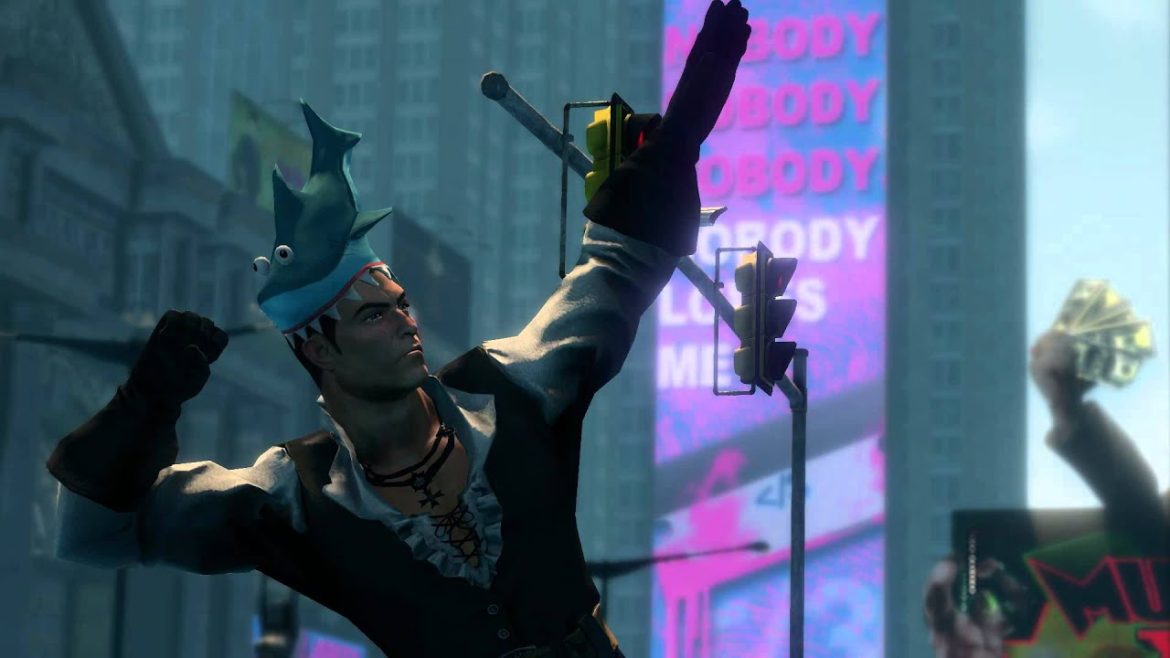Welcome back readers.
It’s somehow already September and I am wishing a very cathartic Labour Day weekend to everyone involved in any kind of strike action right now. As of this publication, this group may imminently expand to include videogame voice actors. Here’s hoping for some much-needed Ws for labour organization across industries as we head into Fall.
This Week in Videogame Blogging is a roundup highlighting the most important critical writing on games from the past seven days.
Not Forgotten
We’re opening this week with two essays informed by recent endings–the abrupt news of Charles Martinet stepping away from voicing Mario and the blindside shuttering of Saints Row developer Volition.
- With Charles Martinet Retiring, Where Does Mario Go from Here? | Paste
Caleb Pisoni reflects on the path forward now that one of gaming’s longest-running voice actors is stepping back. - Saints Row IV Always Takes My Load Off | Paste
Madeline Blondeau pours one out for the better GTA than GTA, and the studio that brought it into the world.
“I can talk about how much I love something until the cows come home. Nothing changes. But I won’t stop talking. I can’t. On the off chance somebody who had some hand in Saints Row IV reads this. Because they gave their lives to the craft, and I want them to know how important that work was to me—and to countless others. To read this and—through the pain—and know that it wasn’t a waste.”
Power Structures
Our next two selections focus on the overarching systems and power structures depicted and critiqued in games.
- La historia de Blasphemous 1 y 2 explicada – Análisis a fondo del lore | GamerFocus
Julián Ramírez delves into the Blasphemous games’ critiques of religious hegemony broadly and Catholic guilt specifically (Spanish-language article). - This RPG forces you to confront capitalism in the hardest way possible | Game Developer
Mira Lazine chats with designer Scitydreamer about anticapitalist adventuring in I Hate You, Please Suffer.
“Living a fulfilling life is one of the greatest challenges under capitalism. It’s easy to fall into the “rise and grind” mentality where we work until we’re in the grave. I Hate You gives a glimpse into how we can counteract this, how we can actually search for meaning.”
New Play
Now let’s turn our attention to design analysis and novel ideas in new-and-recent games
- My Game of the Year is a Freeware Asynchronous Tetris MMO on Itch.io | cohost
funbil extols the ephemeral virtues of cleaning up somebody else’s Tetris mess–or simply causing problems for the next player down the line. - Venba Shows Us Food Doesn’t Have to Just be a Power Up or a Commodity in Games | Paste
Phoenix Simms lifts the lid on doing more with food in games, in Venba and beyond.
“I’m happy that we’re at a point in time now where food doesn’t have to just be a fun marketing tool to encourage constant consumption a la Candy Crush or a simulator that’s tied to a competition or storefront of some sort. Venba shows us that food in games can be more than a delicious-looking power up and help us tell nuanced stories about different cultures and nurturing identities.”
Fielding Opinions
Let’s narrow the focus now, with a focus on space and place in games.
- Object Lessons #1: Field | Unwinnable
Emily Price remarks upon the most unremarked-upon spaces (and negative spaces) in games. - Perhaps, I’ve just been looking for a place to die. | Matthew Pon
Matthew Pon contemplates the unstable fixity of home, in communities, in ecosystems, in a few melancholic games you’ve read about here before and in the writings of one Jeff VanderMeer.
“There is a certain melancholy of coming back to a place you thought you left behind. In connections frayed and left behind in disrepair. In things left unfinished and unsaid and undone. In time spent in repeat, comforting in its familiarity, a reminder or refrain of things lost and then rediscovered.”
Critical Chaser
Don’t blow things up in space.
- How realistic is Starfield? We ask the European Space Agency | Eurogamer
Victoria Kennedy’s conversation with Emmet Fletcher about the material realities of space travel and their variances with videogame conventions was too interesting not to include here.
“At a different point in our conversation, Fletcher told me not to think of an astronaut just as a person in space, but rather as a person “in a very, very small spaceship”. Said Fletcher: “That’s what an astronaut’s spacesuit is, it’s a little, tiny, self-contained spaceship.””
Subscribe
Critical Distance is community-supported. Our readers support us from as little as one dollar a month. Would you consider joining them?
Contribute
Have you read, seen, heard or otherwise experienced something new that made you think about games differently? Send it in!


